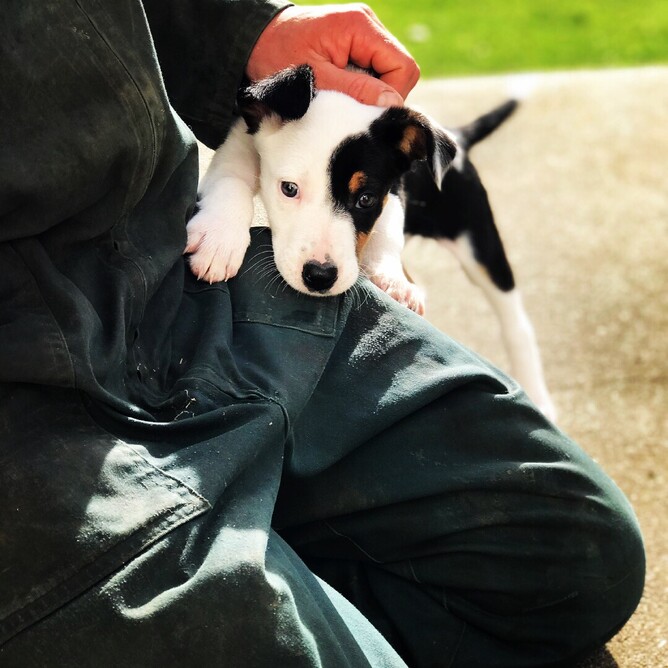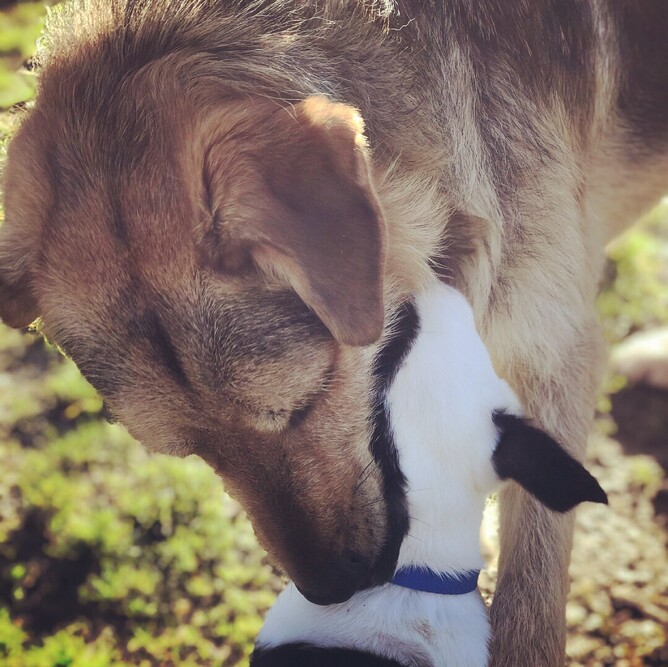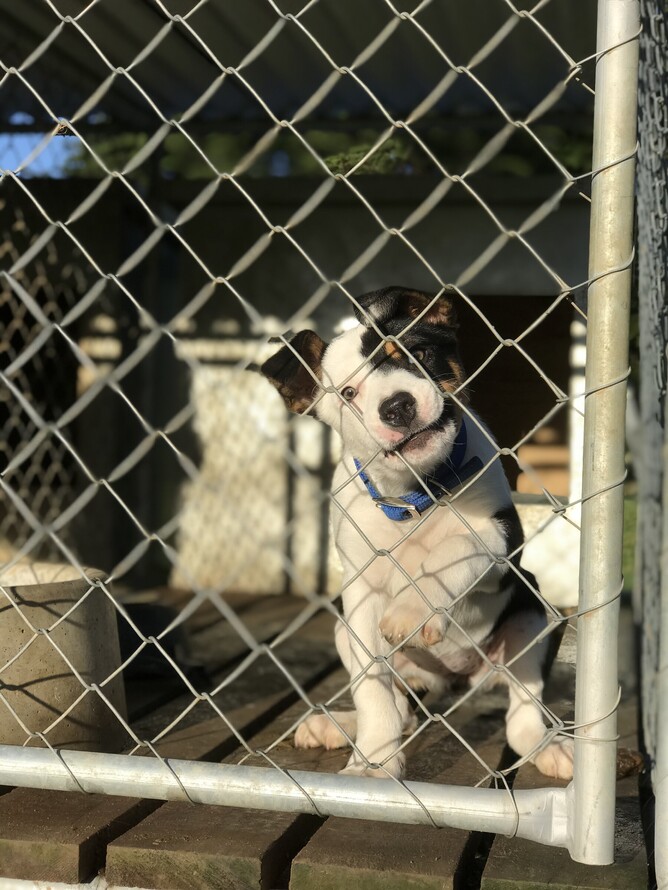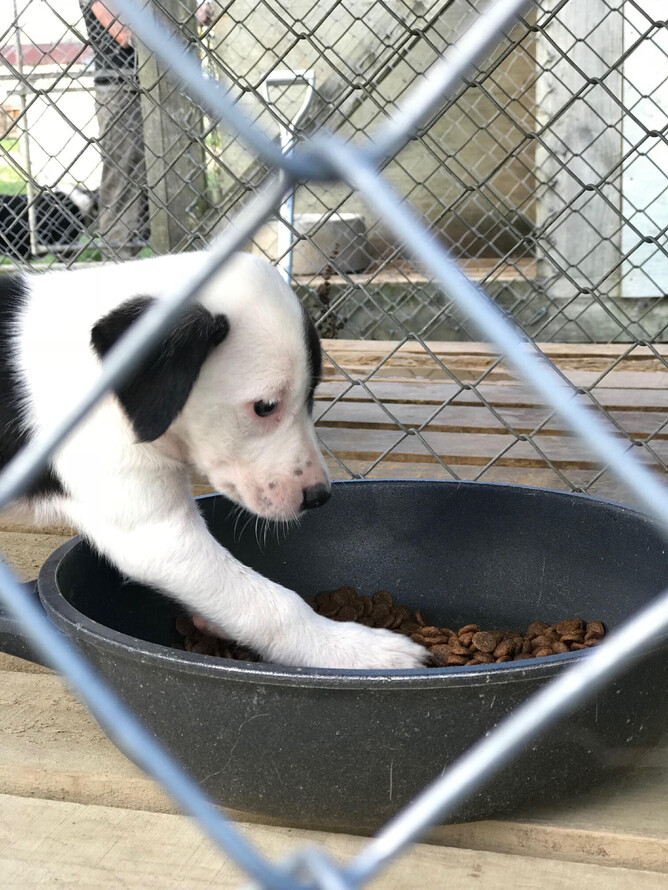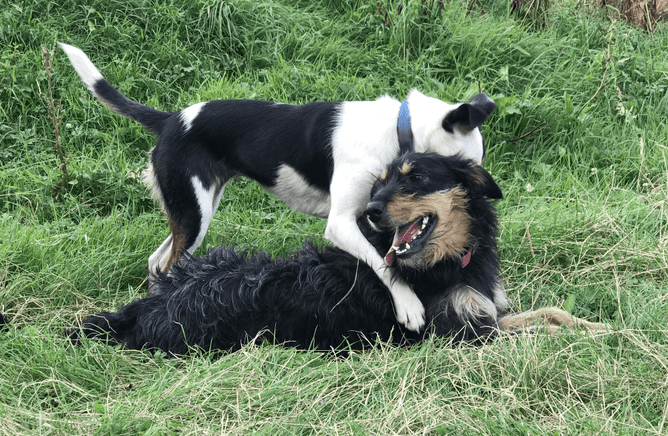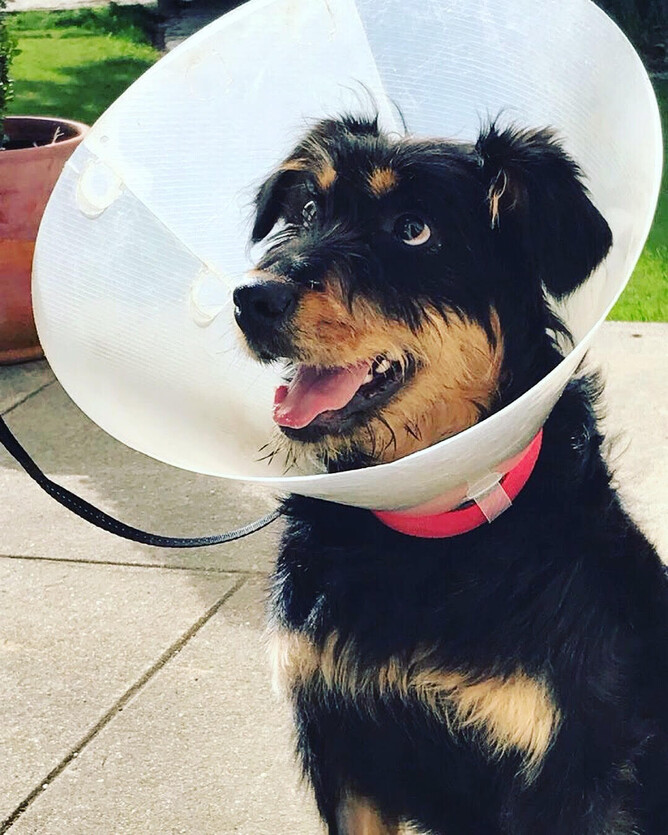Vet Hugh gives a run down on the key things you need to consider for a new farm pup.
So, you’ve just got a new working dog pup? We know that most of you are very experienced and successful with the demanding training process and bringing out the genetic and natural working potential of the pup.
As a review exercise, consider these husbandry and healthcare essentials to give your pup the best chance of developing to its full potential as a productive working dog on the farm:
Introducing your pup
When first introducing the puppy into its new environment, watch out for any aggression from other dogs or farm animals. One quick kick or bite not only risks injury but can also be a significant setback to their confidence in their new environment.
Educate young children on how to respect and interact with the puppy. Help them to understand the risks to their own health from transmissible (zoonotic) diseases and how their behaviour can help to reduce the chances of the puppy biting them and from getting caught in the middle of any inter-dog disputes.
Housing
It's important to provide a warm, dry kennel, of adequate size, that is insulated against cold and excess heat. This should be placed somewhere with shelter from rough weather and with access to shade.
You may choose to start the puppy in a simple kennel close to the yard where you can have frequent hands-on contact. This can help build that human-animal bond and help them understand the hierarchy of their new home.
It can also be useful to get the puppy accustomed to wearing a collar and being tethered on a chain, which will be helpful throughout its working life.
Check collars regularly for fit. Swivel clips and light chains are safer than ropes which may become entangled or be chewed through.
Nutrition
Feeding guides:
Weaning to 4 months of age: 3-4 small meals a day
4-9 months (rapid growth phase): 2-3 small meals a day
9 months onwards: feed at least once a day. Give consideration to the level of exercise, body condition and local weather conditions, all of which will alter their energy needs.
Food options
For growing pups and adolescent dogs, the commercial, high quality diets for large breed and medium breed puppies are recommended.
These are the safest and most convenient way to provide the balanced nutrition required for the moderated growth rates that best reduce the risk of several musculoskeletal developmental problems and chronic joint disease.
As working dog pups continue training and prepare for their working life, they will attain a lean muscular conformation that is considered “ideal” for the performance athletes that they are to become.
Food safety tips:
Store dog food carefully to maintain ingredient quality and food safety;
Puppies like to chew and swallow all manner of objects that become stuck in the mouth, throat or guts. All bones need to be fed with care as they can cause oral and dental injuries, gastrointestinal obstructions and constipation;
Cooked bones are unsafe because they tend to splinter;
Large, clean cut raw bones are safer, but sheep (and goat) bones must first be frozen (-10 degrees C for 10 days), as required for the control of sheep measles.
Socialisation
Up until four months, pups begin early socialisation and learning from new experiences. They are very sensitive to negative experiences at this stage, so keep things positive and don’t overwhelm them with too much at first.
They still need frequent food, sleep and rest.
Health and wellbeing
Vaccinations
Puppies are especially susceptible to infectious diseases and should be vaccinated in line with veterinary recommendations.
A vet will also perform a physical examination when vaccinating your pup and it is a great opportunity to review and discuss the pup’s general health, any problems identified and preventative healthcare measures to consider.
Core vaccinations are given at 8, 12 and 16 weeks as standard, with another shot between 6-12 months of age to catch any individuals that didn’t have a strong immune response to the early doses.
A core 5in1 booster shot is then needed every three years.
Annual vaccinations against canine cough and leptospirosis (if needed) are also recommended.
Worming/parasite control
Worm puppies at two week intervals until 3 months old, monthly until 6 months old and then every three months.
Some pups will then be added to your farm’s dog worming programme and will follow the recommended dosing intervals and product selection depending on the sheep measles control measures you have in place.
Flea (tick, lice, ear mites) treatment and control products are important for the health, comfort and physical condition of your pup.
Parasite control in dogs is also important for public health. Protect yourself and your family’s health with a recommended parasite control plan.
Poisoning
Poisoning cases in pups are mostly caused by the ingestion of farm and garden pest baits, poisonous plants, prescription medicines, chocolate, grapes, raisins, household cleaners, agricultural chemicals, antifreeze, spoiled food, contaminated water or algal toxins.
An ill or injured dog should always be examined by a vet.
Transport health & safety
Pups are at high risk of the rapid onset of hyperthermia and heat stroke if they are confined inside a vehicle cabin, or even if tethered or confined outside without access to shade.
When travelling on an open road, they must be restrained to prevent them from falling off, or from hanging over the edge, but also have enough length to be able to stand or lie down.
Outside the farm gate, pups may be unrestrained while they are actively involved in moving stock and are under your direct instruction and safety supervision.
Reproductive matters
Male pups occasionally have only one testicle reach the scrotum. If it is retained in the abdomen, this should be treated surgically.
Female pups will usually have their first heat between 6 and 10 months of age. They should be supervised or confined and not be bred at this young age.
Female dogs may have a significant number of mammary gland and reproductive organ problems during their lives and so, if you decide early on that you don’t intend to breed from them, an elective ovariohysterectomy (spay) can be a good plan.
Behavioural issues and on-farm dog team dynamics can be another reason for neutering young dogs.
Insurance
Farm insurance policies offer a range of cover options for working dogs. They may cover accidental death only, or they may provide you some financial assistance with the cost of veterinary treatment of injuries sustained in the course of on-farm work.
Discuss this with your agent at each insurance review to be clear what your policy covers.
Pet health insurance can be held for farm pups and dogs for higher value cover of the standard canine health emergency care problems. However, they would not be covered for injuries sustained in the course of performing their farm work duties, because clearly the risk is just too high. This would be clarified at the time of application.
All going to plan, your new working companion will give you many man-hours of loyal service to make your daily work more enjoyable and productive.
